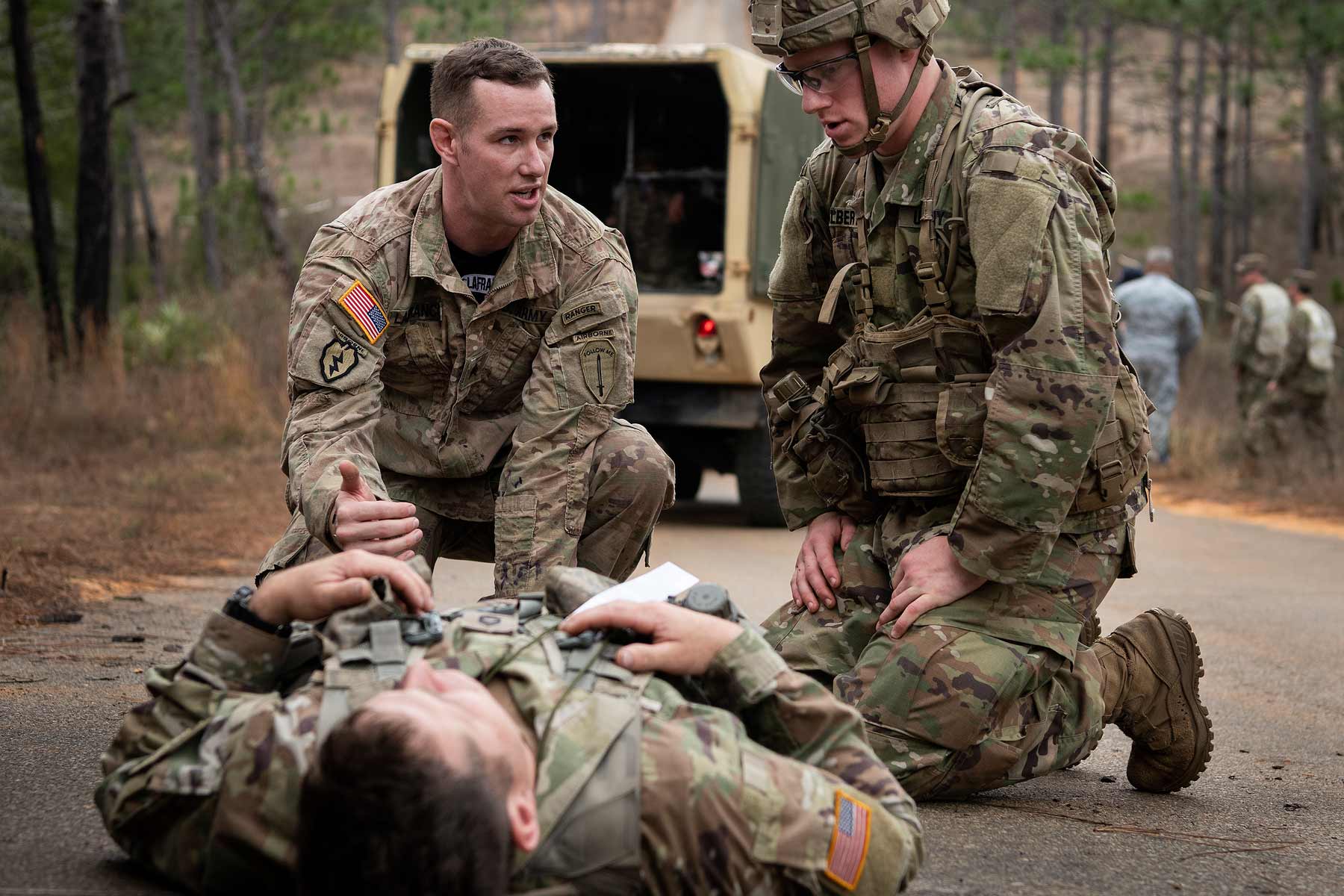11 April 2019
Study Update: Regenerating Bone in Wounded Warriors
Regenerating Bone In Wounded Warriors
Luis Alvarez, PhD
Regenerative Biology Research Group at the National Cancer Institute
REGENERATING LARGE SEGMENTS OF BONE FOLLOWING A TRAUMATIC COMBAT INJURY IS ONE OF THE MOST CHALLENGING MEDICAL PROBLEMS FACING WOUNDED WARRIORS TODAY. INJURIES RESULTING IN THE LOSS OF BONE ARE SEVERE AND COMPLEX IN NATURE, MAKING TREATMENT DIFFICULT AND SOMETIMES IMPOSSIBLE.
Among the many therapies currently in development to address these injuries are those that promote regeneration of bone and restoration of function by using donor bone tissue and marrow, otherwise known as an allogeneic tissue transplant. However, these techniques require lifelong immunosuppression in the patient, which can lead to increased infections and a greatly reduced quality of life.
Geneva Researcher LTC Luis Alvarez, PhD, Principal Investigator and Founder of the Regenerative Biology Research Group at the National Cancer Institute, is researching how to stimulate bone regeneration in wounded warriors without the use of a donor, thus eliminating the risk of life-long immunosuppression. In 2011, Dr. Alvarez began a study with The Geneva Foundation that examined methods to stimulate the expansion of mesenchymal stem cells (MSCs), stem cells that are capable of differentiating into bone precursors, at the injury site. However, the relative scarcity of MSCs in bone marrow (less than 0.01% of all nucleated bone marrow cells ) prohibits widespread therapeutic use in most cases. The development of methods to expand a patient’s own MSCs at an injury site holds great promise for bone regeneration and subsequent quality of life in the wounded warrior. In addition to regenerating bone MSCs also serve as supportive cells that play an important role in regulating the immune system and inflammation.
In 2013, Dr. Alvarez’s study made notable progress by discovering a novel peptide sequence that enabled retention of growth factors at the injury site, thus increasing MSC production. As the unstable wound environment presents unique and specific challenges for proliferating MSCs, LTC Alvarez’s discovery has significant implications for bone regeneration as a whole. This platform technology now allows orthopedic implants to be rendered biologically active and able to support bone regeneration to an extent not previously possible.
By regenerating large segments of anatomically shaped, patient-specific, functional human bone from engineered MSCs, Dr. Alvarez’s research has tremendous potential to transform bone reconstruction to treat congenital defects, cancers, and traumatic injuries in civilian and military populations. Currently, LTC Alvarez is devoting time to advance this platform technology into preclinical trials for segmental bone defects and spinal fusion applications.


